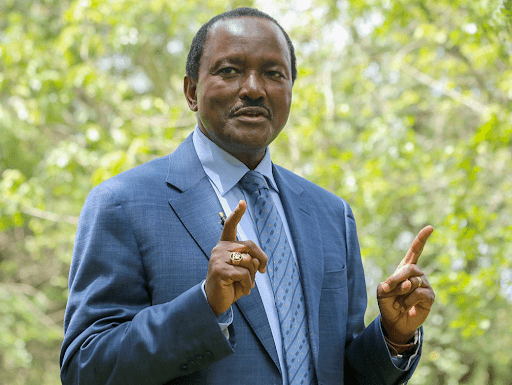The recent altercations between Trade CS Moses Kuria and the Nation Media Group have sparked a debate about recent trends in media. Kuria has accused the newspaper of being deliberately anti-government by the kind of headlines that it has been publishing lately.
It’s true that for quite some time, the majority of the mainstream media, other than the Radio Africa Group and a few others, have been fairly biased against the Kenya Kwanza administration. This has been demonstrated by their recent headlines, editorials, cartoons, hosts and even topics of discussion.
The bias hasn’t started today. It is an open secret that William Ruto was not the candidate of these media houses in the last general election, but Raila Odinga who they openly campaigned for. In fact, due to their relentless positioning of Raila within the prime time news, he was partly able to move from an approval rating of 16 per cent to 49 per cent.
The said media haven’t quite accepted that President Ruto won against their preferred candidate, and have continued with their scheme of delegitimating the government, with the sole aim of portraying it in bad light to the electorate.
It’s well known that the previous administration had a well-calculated and properly financed strategy to influence the headlines, including smear campaigns against anyone who was against their now discredited ‘handshake’ agenda.
I, for example, was a subject of this smear campaign whereby articles and news items were sponsored primarily to assassinate my character, once I fell out with the Jubilee Party over presidential succession. It is thus true that to a great extent, our media isn’t nonpartisan when it comes to politics.
The practice has always been that journalists should remain neutral in a political contest, their role being like that of an umpire to moderate the various viewpoints. Indeed, this had been the practice in Kenya for a fairly long time. Even if there were inclinations, they were not as obvious.
Kenyans will remember competent and very level-headed journalists like Beatrice Marshal, who you couldn’t tell which side she was leaning on. Today, many of the radio, TV and newspaper hosts/writers don’t hide their bias. One can predict views based on the surnames or the region that a journalist comes from.
This is interesting especially because ‘textbook’ journalism and experience were long discarded for celebrities (usually artists) who could pull the numbers to the media stations/platforms. Most of these celebrities have no previous training and/or qualification as journalists. This in my view has gone a long way in de-professionalising journalism as it were.
Secondly, brown envelope journalism has been another reason that has greatly affected news coverage and editorial policy. The fact that to an extent, the media may not cover events unless well facilitated financially has also eroded the objectivity of their content. As the old adage goes, he who pays the piper calls the tune.
There was a cardinal rule that advertisement wouldn’t influence news content, but of late, sponsored and paid for content has blurred the line between commercial adverts (for revenue), and actual independent reporting. Part of this is a result of poor pay to journalists, yet most of it is a result of open corruption and greed for more money in a highly competitive, capitalist world.
Thirdly, media regulation has been far between, with very few cases being won by those who approach the Media Council of Kenya with grievances against a given media outlet or journalist. This has made Kenyans go to court for reprieve, something that has cost some of the media houses an arm and a leg. If MCK was more effective, then such actions wouldn’t be as common.
Nobody is interested in having a pro-government media, as this would not provide the requisite objectivity in matters oversight and accountability. In fact, the media has done a pretty good job in exposing information and scandals that would otherwise not have come to light. Some journalists have actually paid the ultimate price for being on the right side of history in terms of advancing social justice and freedom of the press.
However, that balanced reporting and objectivity have been greatly eroded to the extent that the more democratic alternative that is social media has become so integral to the extent that elections have been won or lost depending on who is better at using such platforms.
Barack Obama, for example, was largely aided by Facebook to win the elections as the first black US president. The same applies to President William Ruto. Social media has thus occasioned the slow death of TV and newspapers in particular. The flip side of it is the advent of fake news, disinformation and lack of professional editing capacity.
If mainstream media is to remain relevant, they must continue to be seen to be an aggregator of reliable, well-balanced content: otherwise, with a smartphone and a social media app, anyone can turn to citizen journalism.
This relegates mainstream journalism as a profession to the periphery. The media must, out of sheer self-preservation, avoid the open bias that can only lead to them losing more audience. I, for example, don’t remember the last time I watched TV for news.










